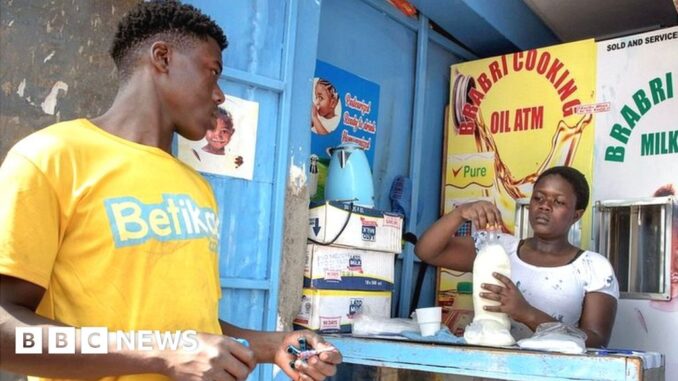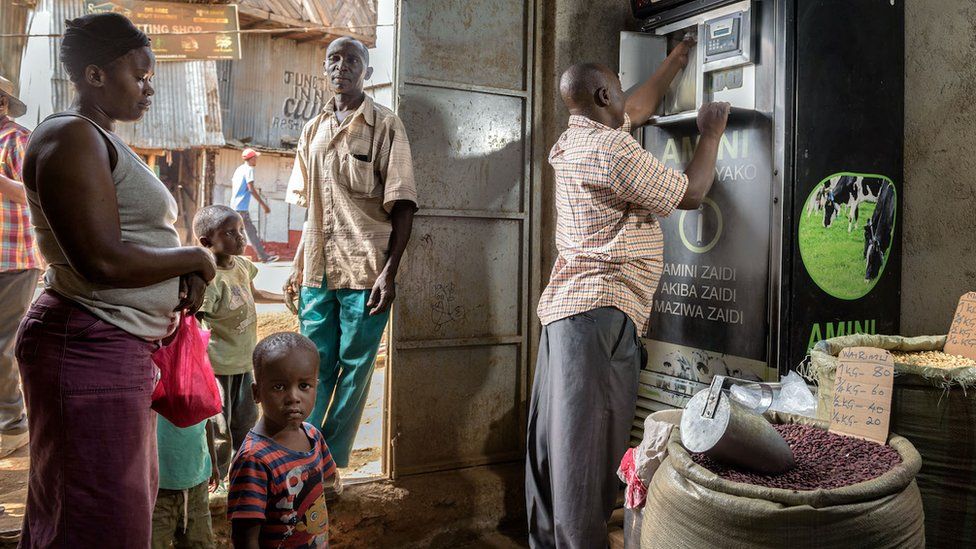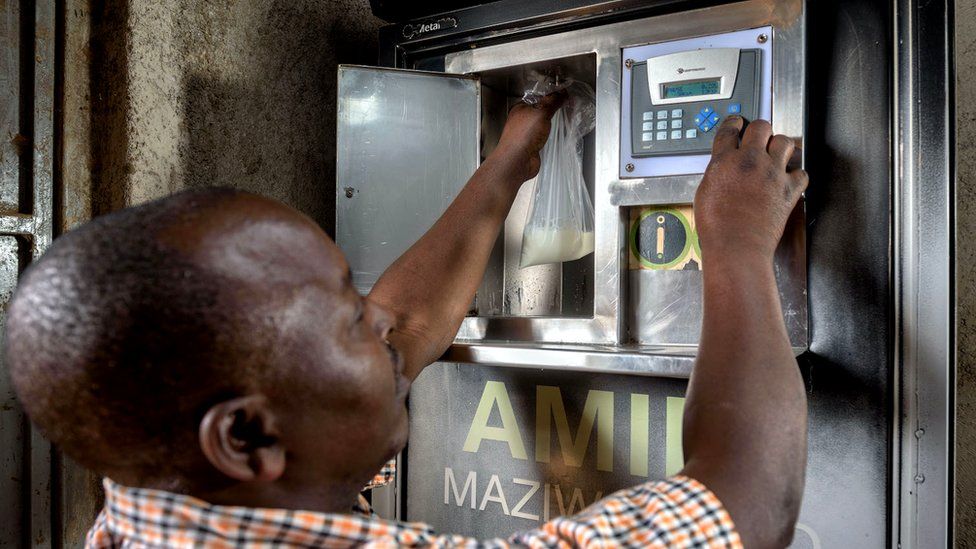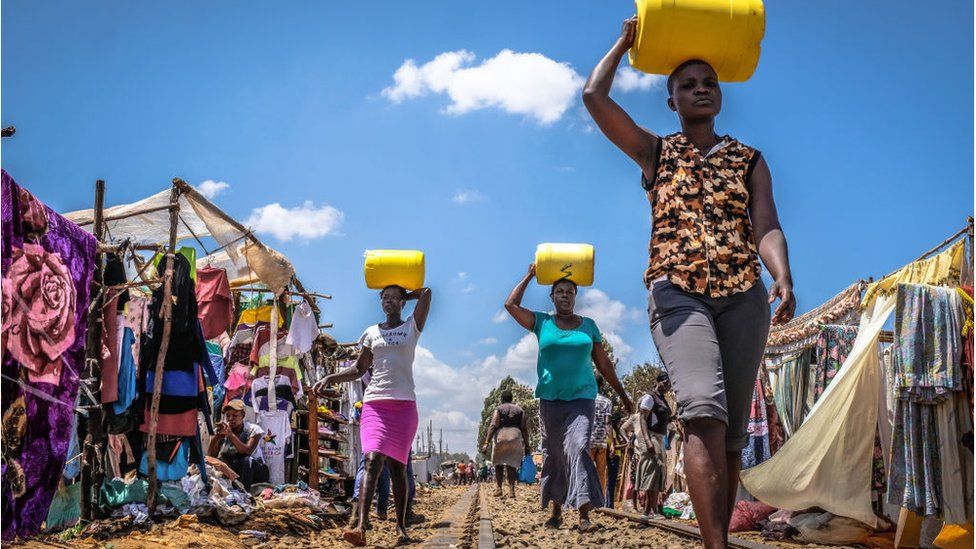

By Andrea Dijkstra
Business reporter, Nairobi, Kenya
Shopkeeper, Jackson Opati, has stopped selling packaged milk from his store and instead switched to using a vending machine dispensing fresh milk. “This ATM is a more lucrative business,” he explains.
Mr Opati runs a small grocery store in the crowded settlement of Kibera in Kenya’s capital, Nairobi.
For the last year, or so, his shop – built from wooden poles and corrugated sheets – has hosted a milk vending machine from US-Kenyan company Zaidi Technologies. It is one of nine such machines that Zaidi has operating in Kenya.
Using a small panel on the front of the machine, he keys in the amount of money that a customer wants to spend and seconds later the corresponding quantity of milk pours into a recycled plastic bottle or bag that the customer brings from home.
“Since I got the vending machine, the number of customers has sharply increased,” he says.

Monday to Thursday, Mr Opati sells 150 litres of milk a day. On Fridays and weekends that jumps to 300 litres, giving him 6,000 Kenyan shillings ($53; £40) in profit a week. “For me, it’s a good business,” he says.
“These vending machines have become very important for us in Kibera,” says one of his customers, Caroline Atieno, while queuing in front of the tall machine, which is decorated with pictures of black and white Friesian cows.
She has five children and says she gets through a lot of milk: “With this ATM, I can spend whatever I want on milk, even as little as 10 Kenyan shillings (9 cents; 7p), based on the money that I have in my pocket.”
This is a key attraction of the selling in this way, Kenyans who live in such settlements, often earn less than a dollar a day, so being able to buy fresh produce in small quantities is a huge bonus.
“The milk is also much cheaper than the packed long life milk which is sold at most places in Kibera, and [it] tastes better,” Ms Atieno adds.

The pasteurised milk from Zaidi’s ATM goes for 65 Kenyan shillings a litre, while packed ultra-heated (UHT) long life-milk normally costs around 110 Kenyan shillings a litre and is only sold in packages of 200ml, 300ml or larger.
In recent years, vending machines have been popping up across Nairobi’s numerous informal settlements – selling milk, cooking oil, clean renewable cooking fuel and sanitary pads.
“We decided to start selling milk through ATMs as it removes the cost of packaging, improves the costs of logistics and allows us to sell milk without attracting VAT,” says Graham Benton, co-founder and chief executive of Zaidi Technologies.
“The ATMs also help us to unlock the 80% of the market that has remained untapped by larger, regulated businesses.”
https://emp.bbc.com/emp/SMPj/2.51.0/iframe.htmlMedia caption,
The clean fuel dispensers popping up across Kenya.
